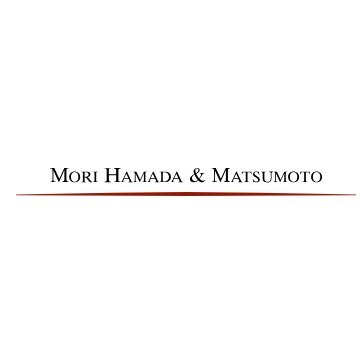Best General Litigation Lawyers in Chiyoda-ku
Share your needs with us, get contacted by law firms.
Free. Takes 2 min.
List of the best lawyers in Chiyoda-ku, Japan
About Litigation Law in Chiyoda-ku, Japan
Litigation in Chiyoda-ku, Japan, involves the legal process of resolving disputes through the court system. As part of the Tokyo Metropolis, Chiyoda-ku is known for being an administrative center, housing government offices and agencies. Consequently, the region attracts a significant amount of legal activity, both at individual and corporate levels. Litigation in Chiyoda-ku encompasses various types of cases, including civil, commercial, and administrative disputes. The legal infrastructure in this area is well-developed, with access to a range of legal professionals and facilities that support effective dispute resolution.
Why You May Need a Lawyer
There are several common situations in which you may require legal assistance in litigation in Chiyoda-ku:
- Contract Disputes: If there is a breach of contract or disagreement over contract terms, legal expertise can help resolve the issue.
- Property Issues: Disputes regarding property ownership, leasing, or boundary lines may require litigation.
- Business Litigation: Business-related disputes, including commercial contracts, corporate governance, or intellectual property infringement, often necessitate legal intervention.
- Tort Claims: These include disputes involving personal injury, defamation, or property damage claims.
- Employment Disputes: Issues such as wrongful termination, discrimination, or unpaid wages might require legal proceedings.
Local Laws Overview
Chiyoda-ku, being part of Tokyo, is subject to Japanese national laws, along with specific local ordinances that may affect litigation. Some key aspects include:
- Civil Code: This governs obligations and contracts, providing a framework for resolving civil disputes.
- Code of Civil Procedure: Establishes procedures for litigation, including steps for filing suits, presenting evidence, and appealing decisions.
- Commercial Code: Addresses corporate and business-related disputes, offering guidelines for commercial transactions and issues.
- Local Ordinances: While generally aligned with national laws, local ordinances in Chiyoda-ku may impact specific litigation cases, especially those involving real estate and administrative matters.
Frequently Asked Questions
What types of cases can be involved in litigation?
Litigation can encompass a wide array of cases, including but not limited to civil disputes, commercial lawsuits, employment disputes, and administrative cases.
How can I find a qualified lawyer in Chiyoda-ku?
You can locate a qualified lawyer through local bar association directories, legal referral services, or by seeking recommendations from acquaintances who have experienced similar legal issues.
What is the typical process for litigation in Chiyoda-ku?
The process generally involves filing a complaint, serving legal papers to involved parties, pre-trial motions and discovery, trial proceedings, and possibly an appeal if required.
How long does litigation usually take?
The duration of litigation varies depending on the complexity of the case, the court's schedule, and willingness of the parties to settle. It can range from a few months to several years.
What are the costs involved in litigation?
Costs can include attorney fees, court fees, costs for obtaining evidence, and potentially costs if a case is lost. Discuss fee structures with your lawyer beforehand.
Can litigation be avoided through other means?
Yes, alternative dispute resolution methods like mediation or arbitration can often serve as faster, less costly alternatives to traditional litigation.
What should I prepare before meeting a lawyer?
Gather all relevant documentation, including contracts, correspondence, evidence, and notes related to the dispute. Be prepared to discuss the details of the issue comprehensively.
Are court proceedings public in Chiyoda-ku?
Generally, court hearings and trials are open to the public, although certain sensitive cases or matters involving minors may be closed.
Can foreign citizens engage in litigation in Chiyoda-ku?
Yes, foreign citizens have the right to litigate in Japanese courts, although it is advisable to engage legal representation familiar with the nuances of local laws and language.
What happens if I lose a case?
If you lose, you may be required to pay costs or damages awarded by the court to the opposing party. There may also be options to appeal the court's decision.
Additional Resources
For further assistance, consider exploring these resources:
- Japan Federation of Bar Associations: Provides a directory of lawyers and information about legal services in Japan.
- Tokyo Legal Affairs Bureau: Offers services related to legal affairs, including public consultations and guidance.
- Chiyoda Ward Office: Can provide information on local ordinances and administrative support for residents.
Next Steps
If you believe you need legal assistance in litigation, consider the following steps:
- Identify the nature of your legal issue and determine whether it is something that might be resolved with legal guidance.
- Consult with a qualified lawyer to understand your options and the potential outcomes of litigation.
- Prepare all necessary documentation and evidence to support your case.
- Discuss and establish fee arrangements with your lawyer before proceeding.
- Consider alternative dispute resolution methods if appropriate, to possibly avoid lengthy court processes.
Lawzana helps you find the best lawyers and law firms in Chiyoda-ku through a curated and pre-screened list of qualified legal professionals. Our platform offers rankings and detailed profiles of attorneys and law firms, allowing you to compare based on practice areas, including General Litigation, experience, and client feedback.
Each profile includes a description of the firm's areas of practice, client reviews, team members and partners, year of establishment, spoken languages, office locations, contact information, social media presence, and any published articles or resources. Most firms on our platform speak English and are experienced in both local and international legal matters.
Get a quote from top-rated law firms in Chiyoda-ku, Japan — quickly, securely, and without unnecessary hassle.
Disclaimer:
The information provided on this page is for general informational purposes only and does not constitute legal advice. While we strive to ensure the accuracy and relevance of the content, legal information may change over time, and interpretations of the law can vary. You should always consult with a qualified legal professional for advice specific to your situation.
We disclaim all liability for actions taken or not taken based on the content of this page. If you believe any information is incorrect or outdated, please contact us, and we will review and update it where appropriate.











